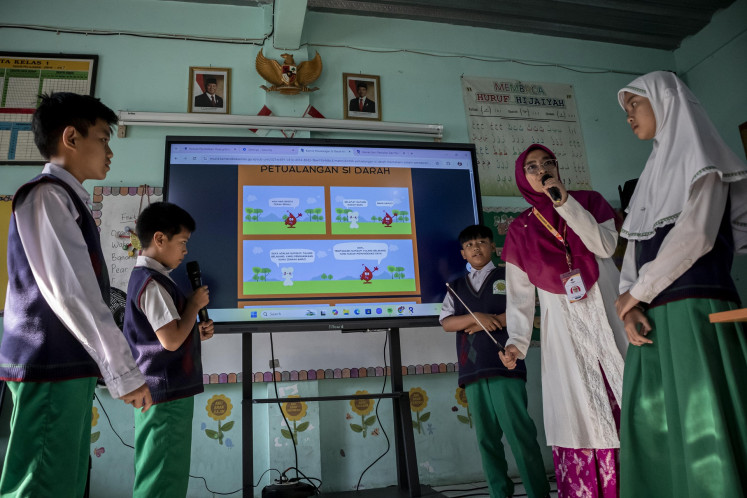Did you know?: The Regional Representatives Council
Following the amendment of the 1945 Constitution in 2002, Indonesia saw the introduction of the Regional Representatives Council (DPD), a state body equivalent to the House of Representatives (DPR), whose members are also elected via legislative elections
Change text size
Gift Premium Articles
to Anyone

F
ollowing the amendment of the 1945 Constitution in 2002, Indonesia saw the introduction of the Regional Representatives Council (DPD), a state body equivalent to the House of Representatives (DPR), whose members are also elected via legislative elections.
When faced with regional autonomy aspirations, the DPD is mandated to voice local interests at the national level. The DPD has the right to provide input to the House and the government on the deliberation of bills relating to regional autonomy and local interests. But in 2013, the Constitutional Court strengthened the role of the DPD by granting its members the right to propose bills, join bill deliberations and take part in formulating the national legislation program.
Each province has four representatives in the DPD, making a total of 128 members in 2004. That increased to 132 members in 2009 following the establishment of a new province, West Sulawesi. At this year's election, as many as 945 candidates will contest the seats in the DPD.
In the past, as required by the Constitution, the Peoples Consultative Assembly (MPR) consisted of elected legislators, representatives from Functional Groups (Utusan Golongan) and regional representatives, known as Utusan Daerah.
At the time, the regional representatives, whose main responsibilities were to choose the president and vice president and formulate the State Policy Guidelines, were selected by provincial legislative councils.
' Lies Sartika









